Uploaded by Rafael Popper 5363 days ago File's language: English Views: 1486
After little more than half a century since its initial development, computer code is extensively and intimately woven into the fabric of our everyday lives. From the digital alarm clock that wakes us to the air traffic control system that guides our plane in for a landing, software is shaping our world: it creates new ways of undertaking tasks, speeds up and automates existing practices, transforms social and economic relations, and offers new forms of cultural activity, personal empowerment, and modes of play. In Code/Space, Rob Kitchin and Martin Dodge examine software from a spatial perspective, analyzing the dyadic relationship of software and space. The production of space, they argue, is increasingly dependent on code, and code is written to produce space. Examples of code/space include airport check-in areas, networked offices, and cafés that are transformed into workspaces by laptops and wireless access. Kitchin and Dodge argue that software, through its ability to do work in the world, transduces space. Then Kitchin and Dodge develop a set of conceptual tools for identifying and understanding the interrelationship of software, space, and everyday life, and illustrate their arguments with rich empirical material. And, finally, they issue a manifesto, calling for critical scholarship into the production and workings of code rather than simply the technologies it enables--a new kind of social science focused on explaining the social, economic, and spatial contours of software.
About the Authors
Rob Kitchin is Professor of Human Geography and Director of the National Institute of Regional and Spatial Analysis at the National University of Maynooth, Ireland.
Martin Dodge is Senior Lecturer in Human Geography at the University of Manchester’s School of Environment and Development.
 State-of-art of sustainable innovation
State-of-art of sustainable innovation Sustainable Innovation Policy Advice
Sustainable Innovation Policy Advice CASI-F: Common Framework for the Assessment and Management of Sustainable Innovation
CASI-F: Common Framework for the Assessment and Management of Sustainable Innovation Your passport to the future!
Your passport to the future! The technology horizon: Preliminary review on technologies impacting the future health and social care workforce
The technology horizon: Preliminary review on technologies impacting the future health and social care workforce CfWI Future workforce matters - Issue 4
CfWI Future workforce matters - Issue 4 CfWI Future workforce matters - Issue 4
CfWI Future workforce matters - Issue 4 Science Foundation Ireland (SFI) Agenda 2020
Science Foundation Ireland (SFI) Agenda 2020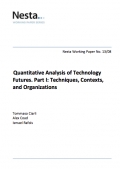 Quantitative Analysis of Technology Futures. Part I: Techniques, Contexts, and Organizations
Quantitative Analysis of Technology Futures. Part I: Techniques, Contexts, and Organizations myForesight: Malaysia's National Foresight Magazine (2nd Edition)
myForesight: Malaysia's National Foresight Magazine (2nd Edition) CfWI Future workforce matters - Issue 3
CfWI Future workforce matters - Issue 3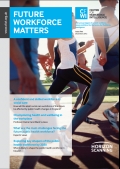 CfWI Future workforce matters - Issue 2
CfWI Future workforce matters - Issue 2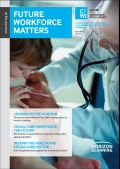 CfWI Future workforce matters - Issue 1
CfWI Future workforce matters - Issue 1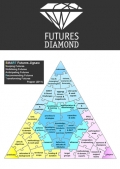 New Horizon Scanning Concepts, Practices and Systems
New Horizon Scanning Concepts, Practices and Systems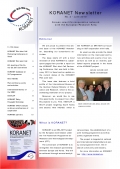 KORANET Policy Foresight Workshop in Vienna/Austria
KORANET Policy Foresight Workshop in Vienna/Austria The Use of Strategic Intelligence and Horizon Scanning
The Use of Strategic Intelligence and Horizon Scanning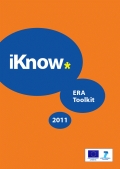 iKnow ERA Toolkit (2011)
iKnow ERA Toolkit (2011)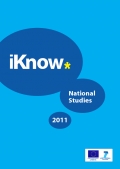 iKnow National Studies (2011)
iKnow National Studies (2011) iKnow Policy Alerts (2011)
iKnow Policy Alerts (2011)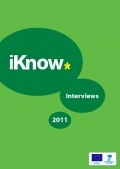 iKnow Interviews (2011)
iKnow Interviews (2011) iKnow Conference - Brussels, 27-28 October 2011
iKnow Conference - Brussels, 27-28 October 2011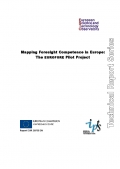 Mapping Foresight Competence in Europe: The EUROFORE Pilot Project
Mapping Foresight Competence in Europe: The EUROFORE Pilot Project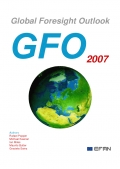 GFO 2007 - Global Foresight Outlook
GFO 2007 - Global Foresight Outlook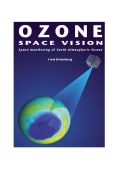 OZONE: SPACE VISION
OZONE: SPACE VISION
iKNOW has been featured in the media and several research projects:
DIE ZEIT (Germany), Financial Times (Germany), El Heraldo (Colombia), Prospective Foresight Network (France), Nationalencyklopedin (Sweden), EFP - European Foresight Platform (EC), EULAKS - European Union & Latin America Knowledge Society (EC), CfWI - Centre for Workforce Intellience (UK), INFU - Innovation Futures (EC), Towards A Future Internet (EC), dstl - Defence S&T Laboratory (UK), EFSA - European Food Safety Agency (EU), Malaysia Foresight Programme (Malaysia), Bulletins Electroniques more...
